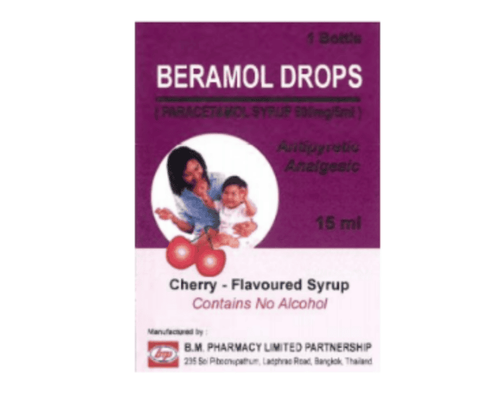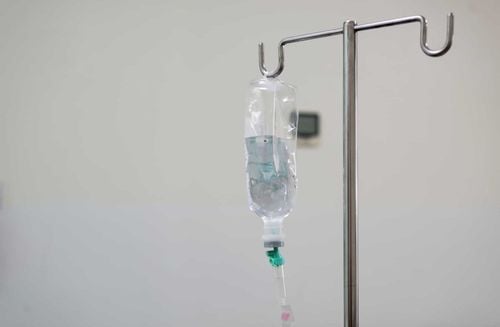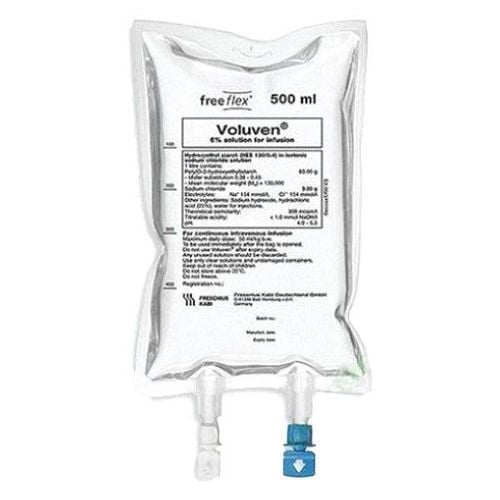This is an automatically translated article.
Dengue fever is a very dangerous disease and quite common in Vietnam, appearing seasonally. Dengue fever, if not treated promptly, will cause many dangerous and even life-threatening complications, including metabolic acidosis, hypoglycemia, calcium and blood sodium levels. These complications often appear when the patient has severe dengue fever (also known as Dengue hemorrhagic fever). So how to treat these complications?
1. What is Dengue hemorrhagic fever?
Dengue hemorrhagic fever, also known as Dengue shock syndrome or severe dengue, is the most severe form of dengue fever, can appear in both children and adults, causing death very quickly if not treated. timely treatment. The disease often presents with symptoms similar to mild dengue fever and bleeding, hypotension, massive bleeding, plasma escaping from blood vessels, metabolic acidosis, hyponatremia, hypocalcaemia.
Patients with a history of dengue fever when re-infected will easily change to this stage (about 2-5 days after dengue fever) because the body already has active or passive immunity to the virus. a viral antigen. Therefore, when you have had dengue fever and are infected for the second time, you should immediately go to a medical facility for early treatment before the disease becomes serious.
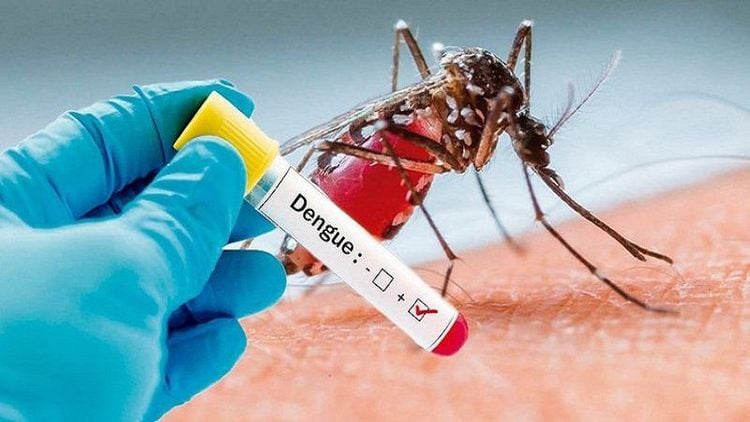
Sốt xuất huyết Dengue là một trong những thể sốt xuất huyết nặng, nguy hiểm
2. Treatment of metabolic acidosis, hypoglycemia, calcium and blood sodium in patients with severe dengue
2.1 Treating Metabolic Acidosis Metabolic acidosis occurs when the body produces too much acid or the kidneys do not remove enough acid from the body causing acidemia, which is a low pH in the blood (below 7.35). ). It is caused by an increase in the amount of hydrogen ions in the body or the inability of the kidneys to form HCO3. If not treated promptly, the patient is very likely to fall into a coma or even die.
Some clinical symptoms of metabolic acidosis:
Cardiovascular: this is the most seriously affected organ system, when metabolic acidosis, the cardiovascular system will have manifestations such as: decreased myocardial contractility, decreased cardiac output, vasodilation, decreased vasopressor effects. Respiratory: increased ventilation, mainly increased tidal volume, decreased diaphragmatic contractility. Nervous system: impaired consciousness Metabolism: insulin resistance, increased oxy-hemoglobin affinity The treatment of metabolic acidosis depends on the condition of the disease:
For dengue patients with mild metabolic acidosis, only Oral sodium bicarbonate 1g has 12 mmol sodiumbicarbonate. For hemorrhagic fever patients with severe metabolic acidosis, pH < 7.2 and/or HCO3 < 15 requiring IV bicarbonate replacement of 4.2% 2ml/kg IV.

Rối loạn tri giác là một trong những biểu hiện của toan chuyển hóa
2.2 Hypoglycemia, calcium and blood sodium Hypoglycemia, calcium, blood sodium are all symptoms of severe dengue. Each symptom will have different symptoms and treatment.
Hypoglycemia occurs when blood glucose level is < 40 mg/dl. Doctors will use Dextrose 30% 1-2 ml/kg TMC for treatment.
Hypocalcemia occurs when the ionized calcium concentration is < 1 mmol/L. The common treatment is to use calcium chloride 10% 0.1-0.2 ml/kg (maximum 2-5 ml/dose) diluted in dextrose 5% 10-20 ml TMC over 5-10 minutes.
Hyponatremia is divided into 3 stages:
Stage without symptoms, Sodium at 130-135 mEq/L Stage of chronic, mild hyponatremia, Sodium at 120-130 mEq/L with symptoms nausea, anorexia, fatigue, lethargy, headache. Stage of acute, severe hyponatremia, sodium level < 120 mEq/L with symptoms of lethargy, lethargy, disorientation, agitation, delirium, convulsions, coma, cerebral depression, apnea. Treatment of hyponatremia is as follows:
Hypovolemic hyponatremia: volume replacement with 0.9% sodium chloride or ringer lactate. Hypervolemic hyponatremia: limit water intake to < 1-2 liters/day; Promotes water and salt excretion. Severe hyponatremia with impaired consciousness: use sodium chloride 3% 4ml/kg IV over 30 minutes, repeat as needed.
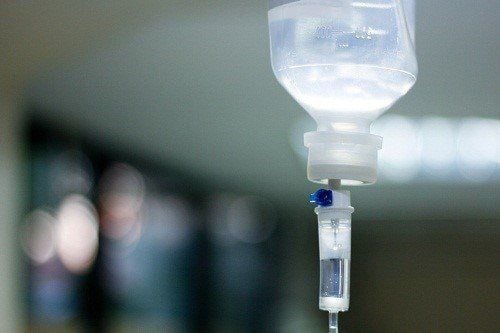
Natriclorua được sử dụng trong điều trị tình trạng hạ natri máu
Dengue fever, if not treated promptly, will cause dangerous complications such as: heart failure, kidney failure, shock due to blood loss, brain hemorrhage, pleural effusion, coma, especially pregnant women will give birth prematurely, miscarriage. Therefore, as soon as the symptoms of dengue fever appear, you should go to a medical facility for early examination and treatment.
Vinmec International General Hospital is one of the prestigious dengue fever treatment facilities with a team of experienced and highly qualified medical professionals. A system of modern and advanced medical equipment, possessing many of the best machines in the world, helps to detect many difficult and dangerous diseases in a short time, supporting the diagnosis and treatment of effective doctors. most fruitful. The hospital space is designed according to 5-star hotel standards, giving patients comfort, friendliness and peace of mind.
If you have a need to examine and treat dengue fever at Vinmec, please book an appointment directly at the website or contact the hotline for service.
Please dial HOTLINE for more information or register for an appointment HERE. Download MyVinmec app to make appointments faster and to manage your bookings easily.




